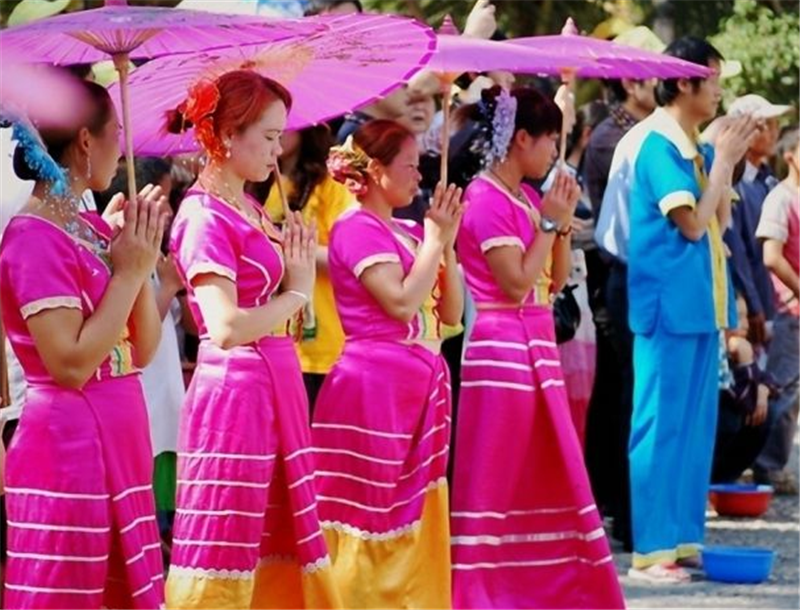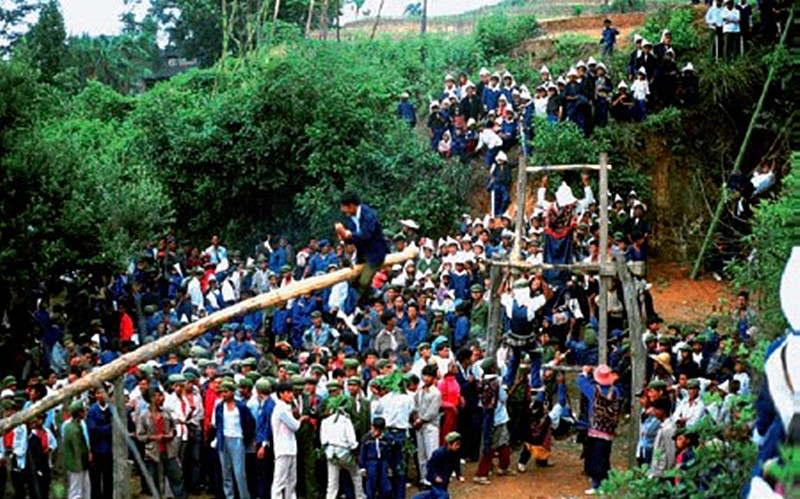 alt="Puer Surrounding Counties and Towns: Weekly & Special Local Markets Travel Guide"
/>
alt="Puer Surrounding Counties and Towns: Weekly & Special Local Markets Travel Guide"
/>

-
- Home
- Yunnan Tours
Most Popular Yunnan ToursEssential Yunnan TripsFind Yunnan Tours by MonthFind Yunnan Tours by Duration
- Group Tours
Popular Yunnan Group ToursAll Yunnan Group Tours
- 1 Day Kunming Stone Forest Group Tour
- 1 Day Jade Dragon Snow Mountain Group Tour
- 2 Days Tiger Leaping Gorge Hiking Group Tour
- 4 Days Haba Snow Mountain Climbing Group Tour
- 6 Days Yuanyang Hani Rice Terraces Group Tour
- 8 Days Kunming-Dali-Lijiang-Shangri-la Group Tour
- 8 Days Yunnan Chinese-Speaking Group Tour
- 15 Days Yunnan-Tibet Small Group Tour
- Themes Tours
Top Yunnan Tour Themes
- Self-Driving Tours
- Family Tours
- Muslim Tours
- Join Group Tours
- Yunnan Hiking Tours
- Tea Culture Tours
- Yunnan Cycling Tours
- Yunnan Golf Holiday
- China Tours Including Yunnan
- Minority Discovery
- Daocheng Yading Tours
- High Speed Train Tours
- Three Parallel Rivers Tours
- Minority Festival Tours
- River Rafting Adventure
- Students Education Tours
- Yunnan (China)-Laos Tours
- Yunnan Birdwatching Tours
- Yunnan Tibet Tours
- Yunnan Coffee Tours
- Chinese-speaking Group Tours
- Yuanyang Rice Terraces Tours
- Snow Mountain Climbing Tours
- Motorbike Tours
Top Yunnan Themes Tours- 12 Days Yunnan Tank 300 Self Driving Tour
- 17 Days Yunnan-Tibet Self-Driving Tour
- 5 Days Kunming Golf Tour
- 7 Days Best Yunnan Golf Tour
- 4 Days Lijiang to Yubeng Village Hiking Tour
- 7 Days Lijiang and Shangri-La Hiking Tour
- 7 Days South Yunnan Muslim Tour
- 8 Days Best Yunnan Muslim Tour
- 8 Days Students Education Tour
- 8 Days Best Yunnan Puerh Tea Tour
- 6 Days Water Splashing Festival Tour
- 8 Days South Yunnan Ethnic Culture Tour
- 46 Days Yunnan Panorama Ethnic Culture Tour
- 2 Days Yangtze River Rafting Tour
- 7 Days Nujiang Grand Canyon Rafting Tour
- 8 Days Meili Beipo Hiking Tour
- 9 Days Lijiang and Shangrila Adventure
- 9 Days Lijiang- Shangri-La Circle Tour
- 12 Days Three Parallel Rivers Overland Tour
- 9 Days Yunnan-Vietnam Overland Tour
- 16 Days Yunnan-Laos Speed Train Tour
- 6 Days XishuangBanna and Puer Birding Tour
- 15 Days Southwest Yunnan Birding Tour
- 9 Days Shangri-La and Lijiang Cycling
- City Tours
Popular Prefecture-Level Cities
- Dali Tours
- Nujiang Tours
- XishuangBanna Tours
- Diqing Tours
- Honghe Tours
- Puer Tours
- Dehong Tours
- Zhaotong Tours
- Yuxi Tours
- Wenshan Tours
- Qujing Tours
- Lincang Tours
- Baoshan Tours
- Chuxiong Tours
Popular Tourist Destinations to Visit- Tiger Leaping Gorge
- Haba Snow Mountain
- Meili Snow Mountain
- Three Parallel Rivers
- Yuanyang Hani Rice Terraces
- Dongchuan Red Land
- Yubeng Village
- Jade Dragon Snow Mountain
- Stone Forest
- Dulongjiang
- Puzhehei
- Feilaisi
- Tengchong
- Jingmai
- Jinghong
- Niru Village
- Lijiang Ancient Town
- Shaxi Ancient Town
- Baisha Ancient Town
- Nuodeng Ancient Town
- Baoshan Stone Town
- Heshun Ancient Town
- Lugu Lake
- Fuxianhu Lake
- Baihualing
- Bingzhongluo
- Mangshi
- Travel Guide
Destination GuideYunnan GuideTravel TipsEthnic CultureYunnan FestivalsGolf CoursesTravel ArticlesYunnan WeatherPopular Destinations Travel GuidePrefecture-Level Cities Travel Guide
- Dali
- Nujiang
- XishuangBanna
- Diqing
- Honghe
- Puer
- Dehong
- Zhaotong
- Yuxi
- Wenshan
- Qujing
- Lincang
- Baoshan
- Chuxiong
Popular Tourist Destinations to Visit- Tiger Leaping Gorge
- Haba Snow Mountain
- Meili Snow Mountain
- Three Parallel Rivers
- Yuanyang Terraces
- Dongchuan Red Land
- Yubeng Village
- Yulong Snow Mountain
- Stone Forest
- Dulongjiang
- Puzhehei
- Feilaisi
- Tengchong
- Jingmai
- Jinghong
- Niru Village
- Lijiang Ancient Town
- Shaxi Ancient Town
- Baisha Ancient Town
- Nuodeng Ancient Town
- Baoshan Stone Town
- Heshun Ancient Town
- Lugu Lake
- Fuxianhu Lake
- Baihualing
- Bingzhongluo
- Mangshi
- Ruili
- Cangyuan County
- Menghai County
- Best Companies in Yunnan
- Celebrities in Yunnan
- Chinese Zodiac
- Footsteps of Joseph Rock
- Government Departments
- Overseas Chinese Farms
- Sports in Yunnan
- Yunnan Administrative Divisions
- Yunnan Agriculture
- Yunnan Art
- Yunnan Borders
- Yunnan Climate
- Yunnan Culture
- Yunnan Economy
- Yunnan Eighteen Oddities
- Yunnan Facts
- Yunnan Geography
- Yunnan Health
- Yunnan History
- Yunnan Maps
- Yunnan Paleontology
- Yunnan Photos
- Yunnan Security
- Yunnan Videos
- Yunnan Shopping
- Yunnan Culture
- Yunnan Cuisine
- Yunnan Tourism
- Arrival and Departure
- Basic Yunnan Travel Tips
- Children and The Elderly Travel
- Chinese Visa
- Destinations to Yunnan Travel
- Drinking Tips in Yunnan
- Embassies in Yunnan
- Entry & Exit Yunnan
- Ethnic Culture Travel Tips
- Etiquette and Taboos in Yunnan
- How to Get to Yunnan
- How to Plan Your Yunnan Trip
- How to Travel in Yunnan
- Keep Healthy in Yunnan
- Money and Banking in Yunnan
- Road Condition in Yunnan
- Safty of Yunnan Travel
- Shopping Tips in Yunnan
- Tips for Group Tours
- Tips for Yunnan Birding Tours
- Tips for Yunnan Hiking Tours
- Tips of Yunnan Food
- Top Things to Do in Yunnan
- Travel to Yunnan in Winter
- What to Visit in Yunnan
- What to Visit in Yunnan
- While in Yunnan
- Why Travel To Yunnan
- Yunnan and Indochina Travel Tips
- Yunnan Photography Tips
- Yunnan Themes Travel Tips
- Yunnan Tour Planning
- Yunnan Tours from China Cities
- Yunnan Tours from Countries
- Yunnan Tours from World Cities
- Yunnan Train Travel Tips
- Yunnan Travel Cost
- Yunnan Travel FAQ
- Yunnan Travel Insurance
- Yunnan Travel Tools
Ethnic Villages, Towns, Heritages in Yunnan- Autonomous Counties in Yunnan
- Autonomous Prefectures in Yunnan
- Ethnic Towns in Yunnan
- Featured Ethnic Villages in Yunnan
- Local Ethnic Markets
- Traditional Villages in Yunnan
- Villages for Ethnic Festivals
- Intangible Cultural Heritages in Yunnan
- Traditional Villages in Yunnan
Ethnic Minorities in YunnanFestivals By Month- Yunnan Festivals in January
- Yunnan Festivals in February
- Yunnan Festivals in March
- Yunnan Festivals in April
- Yunnan Festivals in May
- Yunnan Festivals in June
- Yunnan Festivals in July
- Yunnan Festivals in August
- Yunnan Festivals in September
- Yunnan Festivals in October
- Yunnan Festivals in November
- Yunnan Festivals in December
Festivals By Ethnic MinoritiesTop Golf Courses in YunnanAll Golf Clubs and Courses in Yunnan- Kunming Lakeview Golf Club
- Kunming Country Golf Club
- Kunming Hot Spring Golf Club
- Kunming Sunshine Golf Club
- Kunming Qianglin Golf Club
- Kunming Yulong Bay Golf Club
- Dali Stone Mountain Golf Club
- Qujing Kingyan Manor Golf Club
- Tengchong Gaoligong Golf
- Kunming Spring City Golf & Lake Resort
- Lijiang Jade Dragon Snow Mountain Golf Club
- Kunming ClTlC Ka Lizhe Wetland Field Golf Club
How to Plan Your Yunnan Tour- Packing for Yunnan Birding Trip
- Packing for Yunnan golf trip
- What to Pack for Yunnan Travel
- How to Plan a Winter Ski Tour
- How to Plan a Family Tour
- How to Plan Cycling Tour
- How to Plan Mountain Climbing
- How to Plan Photography Tour
- How to Plan Minorities Discovery Tour
- How to Plan Tea Culture Tour
- How to Plan a Join Group Tour
- How to Plan Yunnan Hiking Tour
- How to Plan Flowers Tour
- How to Plan Education Tour
- How to Plan Birdwatching Tour
- How to Plan Hot Spring Tour
- How to Plan Honeymoon Tour
- How to Plan Muslim Tours
- How to Plan Ethnic Festival Tours
- How to Plan Ethnic Markets Tours
- How to Plan Motorbike Tours
- How to Plan Food Culture Tour
- How to Get to Yunnan
Most Popular Themes Travel in YunnanFour Seasons for Yunnan TravelMonthly Weather and Wearing, Packing Ideas- Weather in January
- Weather in February
- Weather in March
- Weather in April
- Weather in May
- Weather in June
- Weather in July
- Weather in August
- Weather in September
- Weather in October
- Weather in November
- Weather in December
Popular Cities Weather and Climate in Yunnan - Attractions
Top Yunnan Tourist Attractions You Can't Miss Out
- The Stone Forest (Shilin), Kunming
- Dongchuan Red Land in Kunming
- Dali Old Town
- Erhai Lake in Dali
- Three Pagodas Temple in Dali
- Shaxi Old Town in Dali
- Lijiang Old Town
- Jade Dragon Snow Mountain in Lijiang
- Lugu Lake in Lijiang
- Tiger Leaping Gorge in Shangri La
- Haba Snow Mountain in Shangri La
- Dukezong Old Town in Shangri La
- Songzanlin Monastery in Shangri La
- Meili Snow Mountain in Diqing
- Three Parallel Rivers
- Nujiang Grand Canyon
- Yuanyang Rice Terraces
- XishuangBanna Tropical Botanical Garden
- Jingmai Tea Mountain in Puer
- Wild Elephant Valley in Jinghong
- Jianshui Old Town
UNESCO World Heritage Sites in Yunnan- Old Town of Lijiang Since 1997
- Three Parallel Rivers Since 2003
- South China Karst & Stone Forest Since 2007
- Chengjiang Maotianshan Fossil Site Since 2012
- Honghe Hani Rice Terraces Since 2013
- Jingmai Tea Mountain Since 2023
Mostly-read Yunnan Top Things To Do- Top 10 Best-Selling Tours in Yunnan
- Top Tourist Destinations in Yunnan
- Top Ancient Villages to Visit in Yunnan
- The Most Famous Ancient Towns
- The Best time to Visit Yunnan
- Top Main Rivers in Yunnan Province
- Must-Visit Attractions in Yunnan
- Top 10 Reasons To Visit Yunnan
- Top Ethnic Minority Festivals
- Top Things to Know for Yunnan Travel
- Top Beautiful Lakes in Yunnan
- Top Famous Mountains in Yunnan
- Top Snow Mountains to Visit Yunnan
- Top Golf Clubs in Yunnan
- Top Muslim Attractions in Yunnan
- Top Ethnic Markets in Yunnan
- Top Must-Visit Temples in Yunnan
- Most Famous Tea Mountains
- Customize
- Tour Experiences
- Destinations
- Travel Guide
- About US
Find your idea
 7 Days GolfingTour
7 Days GolfingTour
 8 Days Group Tour
8 Days Group Tour
 8 Days Yunnan Tour
8 Days Yunnan Tour
 7 Days Shangri La Hiking
7 Days Shangri La Hiking
 11 Days Yunnan Tour
11 Days Yunnan Tour
 6 Days Yuanyang Terraces
6 Days Yuanyang Terraces
 11 Days Yunnan Tour
11 Days Yunnan Tour
 8 Days South Yunnan
8 Days South Yunnan
 7 Days Tea Tour
7 Days Tea Tour
 8 Days Muslim Tour
8 Days Muslim Tour
 12 Days Self-Driving
12 Days Self-Driving
 4 Days Haba Climbing
4 Days Haba Climbing
 Tiger Leaping Gorge
Tiger Leaping Gorge
 Stone Forest
Stone Forest
 Yunnan-Tibet
Yunnan-Tibet
 Hani Rice Terraces
Hani Rice Terraces
 Kunming
Kunming
 Lijiang
Lijiang
 Shangri-la
Shangri-la
 Dali
Dali
 XishuangBanna
XishuangBanna
 Honghe
Honghe
 Kunming
Kunming
 Lijiang
Lijiang
 Shangri-la
Shangri-la
 Yuanyang Rice Terraces
Yuanyang Rice Terraces
 Nujiang
Nujiang
 XishuangBanna
XishuangBanna
 Spring City Golf
Spring City Golf
 Snow Mountain Golf
Snow Mountain Golf
 Stone Mountain Golf
Stone Mountain Golf




 What Our Customers Say?
What Our Customers Say?
